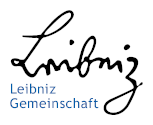- Das Institut
- Forschung
- Diktaturen im 20. Jahrhundert
- Demokratien und ihr historisches Selbstverständnis
- Transformationen in der neuesten Zeitgeschichte
- Internationale und transnationale Beziehungen
- Editionen
- Dissertationsprojekte
- Abgeschlossene Projekte
- Dokumentation Obersalzberg
- Zentrum für Holocaust-Studien
- Berliner Kolleg Kalter Krieg
- Publikationen
- Vierteljahrshefte
- Archiv
- Bibliothek
- Zentrum für Holocaust-Studien
- Aktuelles
- Termine
- Presse
- Neuerscheinungen
- Aus dem Institut
- Themen
- Reordering Yugoslavia, Rethinking Europe
- 75 Jahre Institut für Zeitgeschichte
- München 1972
- Confronting Decline
- Digitale Zeitgeschichte
- Das Deutsche Verkehrswesen
- Bundeskanzleramt
- Demokratische Kultur und NS-Vergangenheit
- Geschichte der Treuhandanstalt
- Akten zur Auswärtigen Politik
- Dokumentation Obersalzberg
- Edition "Mein Kampf"
- "Man hört, man spricht"
- Newsletter
Call for Papers
Mastering Hitler – Outside Views: Continuities and discontinuities of functional elites in Germany from the 1920s to the 1970s and its recent historical research discourse in international perspective
4 – 6 October 2023 at the University of Zurich
Organized by: Magnus Brechtken, Wladyslaw Bulhak, Mikael Nilsson, Tobias Straumann, Thomas Wegener Friis
Over the past two decades historical research in Germany on questions of “Coming to terms with the past”, i.e. the legacy and impact of National Socialist rule, has focused on the question of continuities and discontinuities of elite groups in politics, ministerial bureaucracy, administration, parliamentary institutions, diplomatic services, medical profession, judiciary and many others incl. e.g. the development from the Reichsbank to the Bundesbank, from the SS and Gestapo to the West German Intelligence Services.
These research projects have produced a wide variety of publications, most of which are only available in the German language. They provide a plethora of new knowledge and insights into the way in which people at certain positions in German institutions developed their worldview and their actions from the late 1920s through the Third Reich to the Federal Republic. Yet, there has been little attention so far towards the “view from outside” both during this period (the 1920s to the 1970s) as well as part of the historiographical discourse which shaped topics of contemporary history over the past two decades.
The conference shall address this void and broaden the international perspectives. First it shall look at how Germany‘s “coming to terms with the past” and the role of the functional elites in the period after 1945 was viewed, perceived and discussed in other countries during that period. While there has been considerable research on the views of the Western allies, little is known about discourse in many other countries. The conference seeks to identify the present state of our knowledge and is open for suggestions to learn about research on countries which may have not been in the focus so far.
The conference shall also put the research development and results of the past two decades into an international historiographical perspective. We would like to invite scholars from all areas which are interested in German historiography to participate in the evaluation of how these research projects fit into the general development of Germany‘s coming to terms with the past over the past seven decades.
Aim is to link the rather German-focused discourse over the past years to an international discourse which shall function as a bridge between the German-speaking and the English-speaking world. The conference will be organized as a collaboration from scholars from Denmark, Germany, Poland, Sweden and Switzerland.
We would like to invite contributions to the conference on topics like:
- Relevance and consequences of discussions on continuity for the image of the German States
- Reflections and discourse on perceptions of the West German public and their attitude to German history
- The use (and misuse) of the past as a tool in Cold War confrontation
- Perceptions of German historiography and its international context
- Campaigns and media echoes on topics relating to the NS past
- Discussions about representatives of German elite continuity in foreign countries
- Analyses with a comparative focus: E.g. parallels and differences on the question of dealing with a country’s own difficult past with reference to its relations to Germany 1933-1945
These are examples. We would be pleased to receive suggestions on other topics.
The conference will take place at the University of Zurich. Conference language is English. We hope to be able to provide all participants with a reimbursement of costs for travel; accommodation in Zurich shall be provided.
Please send your proposals (max. 250 words) and a brief biographical note (max. 100 words) to conference_mh(at)ifz-muenchen.de by 9th January 2023. Applicants will be notified in January 2023.



